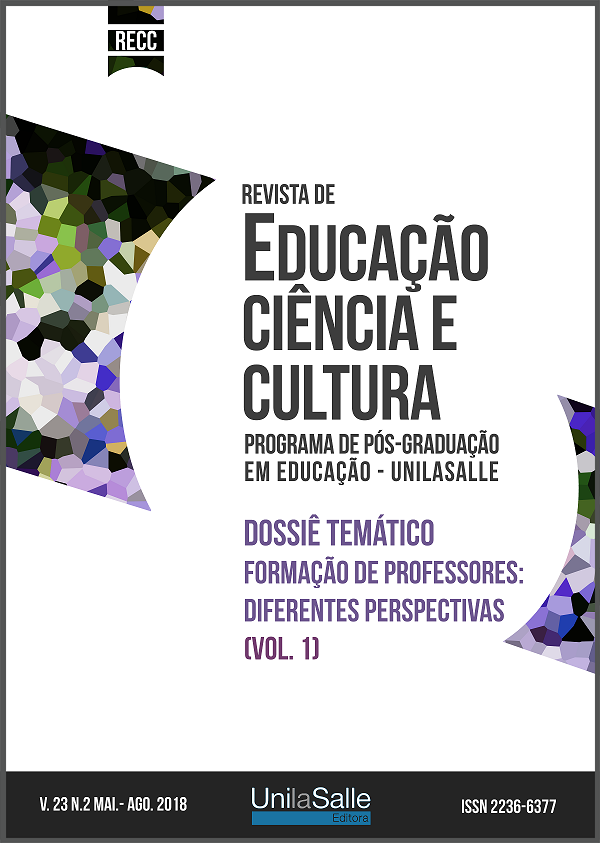Teachers/researchers education: contributions and implications of the cartographic method for research in education
DOI:
https://doi.org/10.18316/recc.v23i2.4370Keywords:
Teacher/Researcher Training, Educational Research, Cartographic Method.Abstract
This paper shows theoretical reflections about the educational field in postmodernity, and the contributions of the social cartography method for research in education, considering teacher/researcher education. It aims to discuss the contributions and implications of the cartographic method for the formative processes in the educational field thoroughly the analysis of following aspects: the genesis of the cartographic method and its main characteristics; the difference of traditional cartography and social cartography; the role of the teacher/researcher in the cartographic method; basic principles of cartographic research and the challenges that are presented in the educational field, especially in educational qualitative research. As a methodological perspective, the research was based on a bibliographical approach in order to present the genesis and your contributions to the way of doing involved/engaged in the educational field from the theoretical dialogue. In view of these dialogues, we point out that the cartographic method contributes to the education of teachers/researchers in the sense of promote the formative and self-formative process as move to think and experiment with new methodological decisions and to search for singularities, contextual narratives and inventive paths in the adventure of researching. These processes described in clues imply to seek out ways to escape grids and homogenizing narratives for to take risks displacing points of view considered correct and appropriate to the methodological decisions adopted, and that enables us to infect so many other researchers, as much like us, that we seek new paths and new looks in education research.
Downloads
Published
Issue
Section
License
Authors must submit their manuscripts to be published in this journal agree with the following terms:Authors maintain the copy rights and concede to the journal the right of first publication, with the paper simultaneously licensed under the License Creative Commons attribution that permits the sharing of the paper with recognition of authorship and initial publication in this journal.
Since the articles are presented in this journal of public access, they are of free use, with their own attributions for educational and non-commercial purposes.
The Periodic Journal of Education, Science and Culture in http://www.revistas.unilasalle.edu.br/index.php/Educacao was licensed with a Creative Commons - Attribution - Noncommercial 3.0 Not Adapted.


